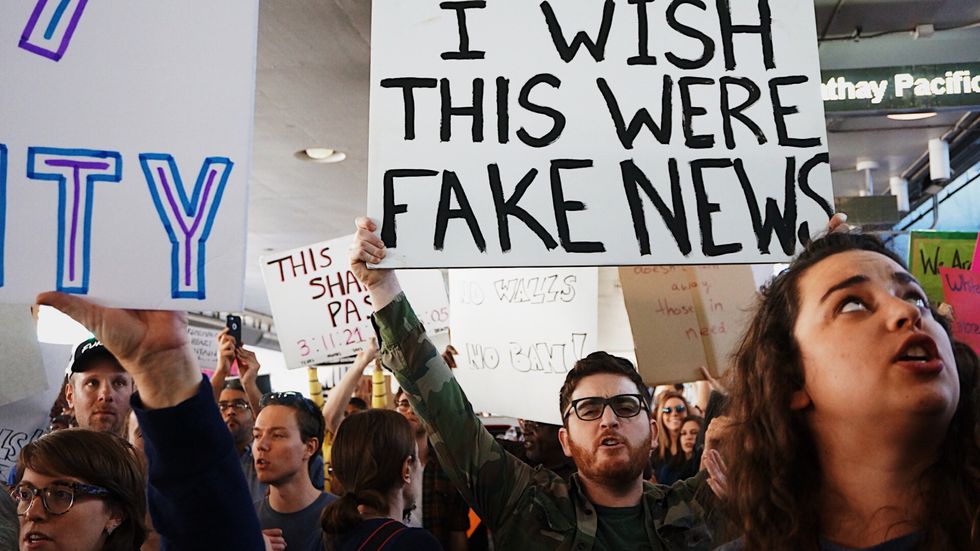Fake news is a topic that got its fame largely during the 2016 presidential election. You can search "fake news 2016 election" on Google, and over 52 million results will pop up.
The Cambridge Dictionary defines fake news as "false stories that appear to be news, spread on the internet or using other media, usually created to influence political views or as a joke."
The term has been widely misconstrued since the election. Various media outlets have been deemed to provide "fake news" by Donald Trump and other political figures.
As a journalist, the fake news wave has been totally disgraceful to actual media outlets that produce real content.
The way I see it, Trump has used the term to try to tear down media outlets that report on stories he does not want to be reported on. However, Trump is not the only one using this term incorrectly. Scroll on any Facebook comment section, or look at replies to tweets, and you'll find people "calling out" fake news.
Disagreeing with news does not make it fake.
Actual fake news comes in outrageous stories that could never be real — because they aren't.
What is even crazier to me is that, when I stay on Facebook for more than five minutes, I see people sharing actual fake news stories and believing they're true, then sharing real news stories and claiming they're fake.
So, why is fake news an issue news consumers should care about?
Granted, some actual fake news stories are on platforms that look very deceiving. That is why it is up to readers to do further research. Media literacy among readers is a very important skill to have because of true fake news articles.
Websites such as Snopes are fact-checking websites for users to use if they're unsure if the content in a story is true.
Here's a hint from a journalist to a reader: Websites such as The Onion, Breitbart and InfoWars are NOT reliable sources for news. If a website seems oddly suspicious, it only takes a few seconds to go to Google and enter the headline or something similar to the headline to see if there are other sources reporting on the topic.
The Washington Post, The New York Times, CNN and ABC News are just some examples are reliable and trustworthy news sources.
Before sharing an article on Facebook or retweeting an article on Twitter, take a few seconds to double check and make sure that it's factual — especially before spewing out hatred against a person, organization or party.
And if it isn't factual, don't share it.
A lot of the time, readers will only read headlines and look at cover photos without reading the actual article. So, make sure you have all the facts before sharing something.



 mr and mrs potato head
StableDiffusion
mr and mrs potato head
StableDiffusion












